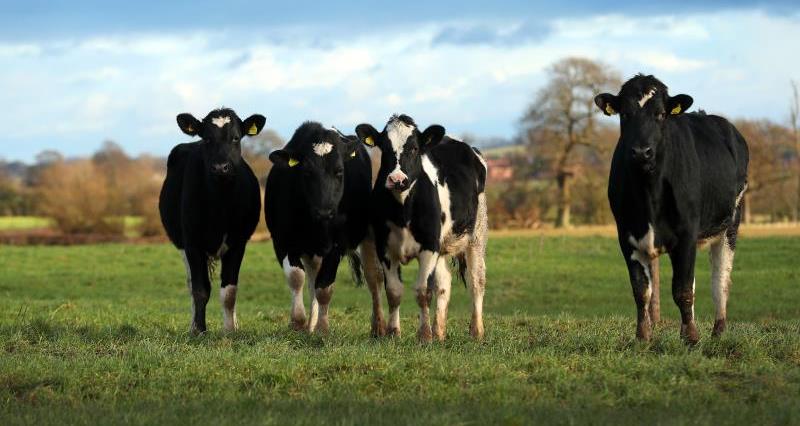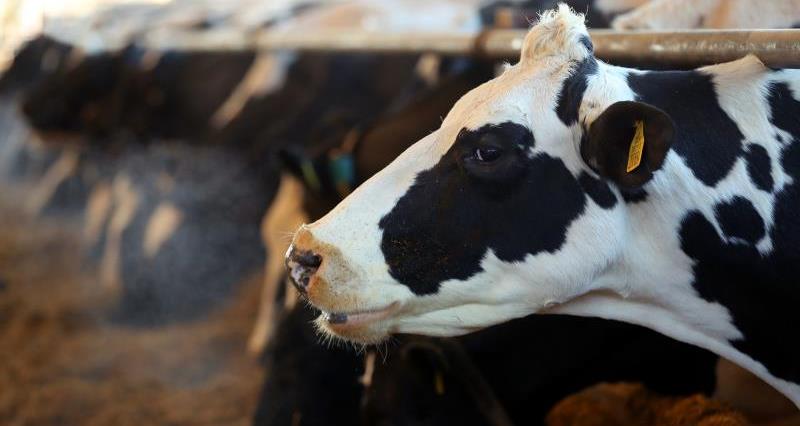The NFU’s Dairy Board, working alongside other farming unions, has long been lobbying for a fairer, better functioning, and more transparent dairy supply chain to address some of the worst abuses of power against farmers.
We were pleased to see Defra reveal more detail about regulation set to come into force later this year, aimed at ensuring contracts in the dairy sector are fit for purpose.
A dairy contract is so much more than a piece of paper.
It's a way of working, and the building blocks for a relationship between a farmer and a milk buyer. For too long we have seen an imbalance of power which has made those relationships strained and unproductive.
The “Dairy Code of Conduct” has been developed by the government, following feedback from the 2020 consultation which found that unfair practices, linked to buyers having the power to set and modify contract terms and pricing mechanisms without negotiation, “persist” in the sector, creating uncertainty and ambiguity and ultimately instability across the supply chain.
Long-term resilience under threat
For many producers, this regulation is coming at a crucial time when dairy farmers are once again facing volatile markets, significant inflationary pressures and below cost of production prices with the long-term resilience of businesses under threat.
Last year alone saw nearly 5% of dairy farmers leave the industry, despite the higher farm-gate prices experienced towards the end of 2022.
This boom-bust cycle is unsustainable for many businesses and brings into focus the vulnerability of our food supply chain and the urgent need for investment if we are to meet our environmental and climate targets. Food affordability is key, but many businesses have been frustrated as the higher prices experienced by shoppers during this cost-of-living crises have not always been reflected by a farm-gate price which takes into account the cost of producing food.
In the past, we know that this combination of events has heavily influenced production decisions. That is why we have relaunched our dairy intentions survey for members.
The survey will run until 26 July to assess the impact current market uncertainty will have on UK milk production over the next 2 years. It asks producers about their plans to increase, decrease or stop production and the main reasons why; be it milk price, labour shortages, succession planning, or the cost of new regulation. The results from this survey will help shape the NFU’s lobbying work and conversations with policy makers and stakeholders across the industry.
Regulation not a silver bullet
We need to be clear – this code of conduct is not (and has never been) a way to guarantee higher prices.
The market will always, and should, determine the price. What the regulation should do is achieve better transparency and trust by providing businesses with the confidence to know exactly how their milk price is determined and ensure any changes to contract terms are negotiated between the two signing parties and are not one-sided.
“This is about setting a level playing field for all.”
NFU Dairy Board chair Michael Oakes
It should also introduce clearer rules around notice periods and contractual exclusivity, removing ambiguity and the potential for exploitation, and better protect the rights of buyers and sellers alike.
We know that many farmers already have good relationships with their purchasers, and there are examples of good practice within the industry; this code should help ensure all dairy farmers have the opportunity to start from a fair baseline and position of trust.
We expect the legislation to provide the ground rules. We know that the UK dairy sector is varied, and different markets and arrangements already exist and so flexibility will be essential. But this is about setting a level playing field for all.
Improving farmer representation 'vital' for success
For a fully functioning supply chain, we need to see the code pave the way for better farmer representation and cross industry collaboration. The challenges we face going forward need to be tackled together; we cannot work in silos when it comes to climate change, market volatility or adapting to changing consumer demands.
In order to get the most out of the code, we must see farmers working better together to improve their negotiating position. The launch of the code is the perfect time to promote representation opportunities and help ensure structures such as producer prganisations are accessible and fit for purpose to place dairy farmers in as strong a position as possible for the future.
Stronger producer/processor relationships can deliver benefits across the supply chain, helping to deliver on environmental goals, benchmarking, volume management, succession planning and more. To get the most out of dairy contract regulation, processors should be open to conversations with their suppliers about forming or strengthening farmer representation.
Next steps
We know many members have been frustrated with the slow progress of this legislation. Whilst it has taken too long to get to this point, it is important in these final stages for the government to continue to consult with industry to get the detail right.
We have been pleased with the way government have worked with industry so far, but the devil will be in the detail. We will continue to work with Defra to ensure this fundamental piece of work delivers for the industry and for dairy farmers across the country.
More from NFUonline:

Dairy contract regulations – the consultation from start to finish



